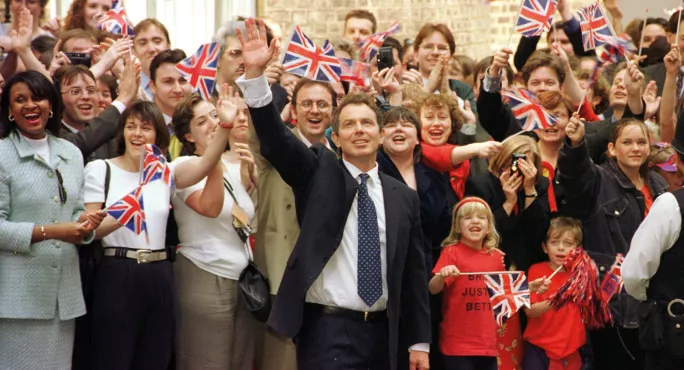It is the perfect contrast.
Exactly 20 years ago, schools were top of the political agenda as Labour swept to victory in the election, with Tony Blair’s “education, education, education” competing for iconic status perhaps only with Bill Clinton’s 1992 “It’s the economy, stupid” campaign slogan.
Today, only 1 per cent of the public believe that education is the most important issue facing the nation, according to an Ipsos MORI poll in January. And in the run-up to the general election on 8 June, schools fail to make it to the top of the list of topics being discussed on Twitter, according to the Political Futures Tracker run by Nesta and the University of Sheffield.
Many would argue that the reason education is so far down the political agenda is that levels of attainment have improved, with the proportion of 11-year-olds reaching the required standard in reading and maths up from 67 per cent to 85 per cent and 62 per cent to 87 per cent respectively since 1997.
Lord Blunkett, who became education secretary in 1997 and implemented the national strategies on literacy and maths, insists that the impact Labour had on education is indisputable and puts any doubts down to poor memories.
And the Blair agenda did not come to a halt when the Conservatives came to power in 2010. In fact, Michael Gove, who, like Blunkett, had some three years as a shadow to hone his thinking before becoming education secretary, declared himself the “heir to Blair”, continuing with comprehensive education, school autonomy, “hero heads” and a focus on the poorest children.
Grammar schools plan is purely political
But most of this, if not all, comes to an end with the new administration. There is no longer a commitment to autonomous comprehensive schools with high-performing heads lifting the results of all pupils, especially the poorest. Instead, there is the top-down imposition of divisive selective schools, targeted at improving the lot of the lower-middle classes rather than that of the poor. And unlike most of the educational policies under both Blair and Gove, which were authored by and supported by educationalists and at least in theory rooted in evidence, the latest intervention is purely political, not educational.
Even some in the Tory party find that a step too far. Tim Shipman, political editor of The Sunday Times, in his book All Out War: the full story of how Brexit sank Britain’s political class, implies that one of the reasons why former prime minister David Cameron resigned his seat last year was that he couldn’t face voting for more grammar schools.
The upcoming election is, of course, undoubtedly about Brexit. But Brexit is also about education. As Sam Freedman, Tes columnist and former adviser to Gove, pointed out after the referendum last June, the single biggest predictor of how people voted was their level of education.
Of those holding a degree, fewer than 30 per cent voted out, and the areas voting overwhelmingly to leave the EU correlated almost exactly with the government’s educational “cold spots”.
Back in 1997, Brian Cox was the floppy-haired keyboard player in D:Ream, the band whose Things Can Only Get Better became an anthem for the Blair campaign.
Twenty years on, Cox is a prominent television science presenter and professor of particle physics. He understands the value and the power of education and has called for teachers to get a “significant” increase in pay and respect, “because it is an investment that would pay itself back many times over in the decades to come”.
It is the perfect contrast.
@AnnMroz




